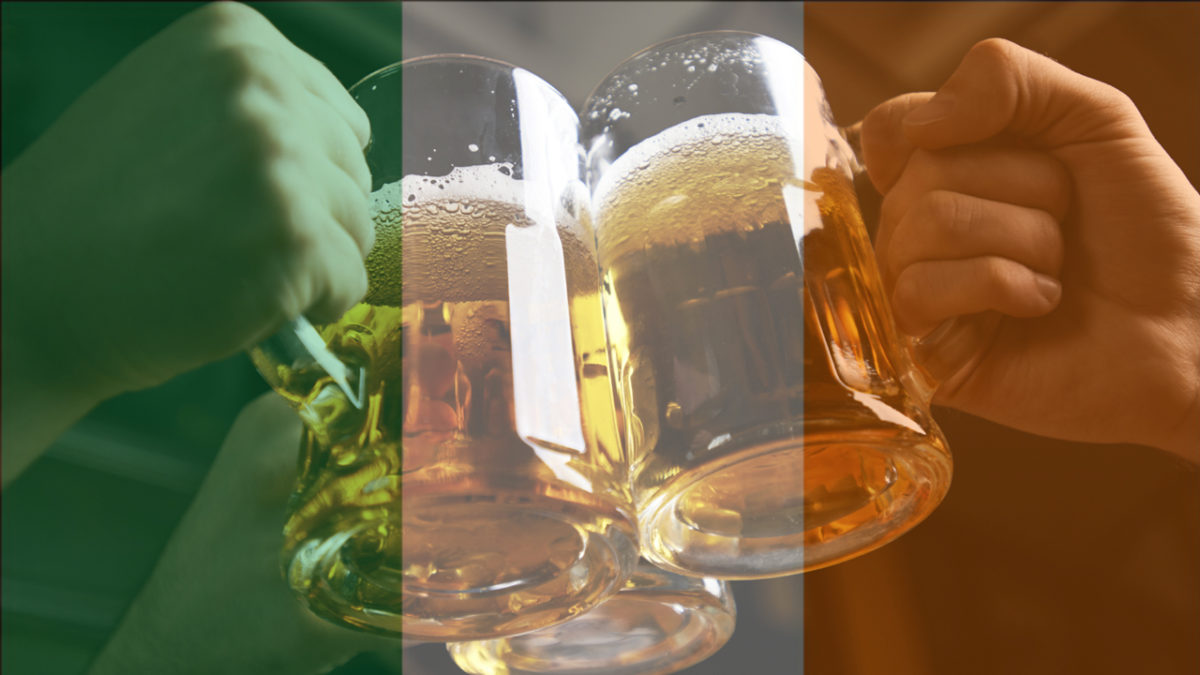St. Thomas University Irish studies professor Ian Smith remembers celebrating St. Patrick’s Day with his family in Ireland as a child. Wearing their finest green attire with shamrocks painted on their faces, the whole family would go into Dublin to watch the parade to celebrate among their Irish community. It was a day about family, but as Smith grew up, commercialism and the tourism industry began corrupting the holiday.
“I think that community spirit and the whole idea of a parade and going for a few drinks, having a good time listening to music in that community setting is what [St. Patrick’s Day] is all about in Ireland, [but] it’s just been kind of taken, blown up and used as a way to get people to spend money on drinks in pubs,” Smith said.
Through commercialization, the holiday became recognized globally which may have led to cultural appropriation of Irish heritage.
“I think businesses use holidays for commercialization and that’s a main reason that I think [St. Patrick’s Day] has been appropriated,” Smith said.
St. Patrick’s Day was established during the 17th century when Saint Patrick, the patron saint of Ireland, brought Christianity to the country. It was originally a religious holiday for Irish people, but over time, the world adopted the celebration, making it a day about binge-drinking.
Smith moved to Fredericton from Dublin in September 2016. After spending one St. Patrick’s Day in New Brunswick, he immediately noticed a difference.

“St. Patrick’s Day was a bit of a shocker for me over here last year. Over here [the holiday] is intensified. I remember being at Dolan’s [Pub] last year … And I remember looking around and I was thinking, ‘This is not my culture.’ It’s a very strange thing to see and then also everyone is telling you how Irish they are. Like, that’s great, but how do we gauge this?”
Despite the commercialization of the holiday, there are other reasons Smith doesn’t like to celebrate.
“I genuinely think [St. Patrick’s Day] is just an excuse for people to drink, which is a shame that the Irish are associated with that, which I understand why, but Ireland has a serious alcohol problem,” he said.
Smith believes Ireland should get it’s act together instead of celebrating something so harmful to its people. And in other countries, he sees non-Irish people celebrating something they don’t understand, which can be problematic.
“It’s weird to celebrate something that causes so many social issues in Ireland. Alcohol is the main reason why we have so many homeless people, why we have mental health issues across the country, why there’s a housing crisis … Alcohol is the number one culprit of that and [people] don’t see that because we’re seen as the happy, jolly Irish people.”
Trinity Kirk is the president of An Cumann Gaelach STU, the university’s Irish society She’s a descendant of Irish ancestry and she thinks celebrating as a non-Irish person perpetuates Irish stereotypes.
“To celebrate being Irish is one thing, but to celebrate the stereotype of what the Irish might be is a completely different thing,” Kirk said.
Kirk is a fourth-year psychology and criminology major who is also double-minoring in forensic anthropology and Irish studies.
“I think that the celebration of St. Patrick’s Day globally could be considered cultural appropriation as it takes the stereotypes of the Irish and magnifies into what people therefore celebrate,” she said.

“I see it as wildly inappropriate to use St. Patrick’s Day to be blackout drunk and use Irishness as a justification for it.”
As a native Irishman, Smith understands Irishness to be a mentality and a personality, not a capacity to drink green beer and be rowdy.
“It’s their quick humour, quick wit, sarcasm and tough love. That’s [what makes someone Irish].”
In Canada, Smith doesn’t see that as much. He sees anyone and everyone celebrating his heritage in a way he isn’t comfortable with and he thinks it’s because the Maritimes aren’t as exposed to as many cultures as his homeland is.
“It has a lot to do with access to travel, especially in East Coast Canada. I’ve talked to so many people who haven’t been out of Canada and … I know people who haven’t been out of New Brunswick, and that for me as a concept is crazy,” he said.
“[In Europe], you’re exposed to other cultures, so I feel like we respect other cultures as well because we see that it’s a living culture. It’s tough to see that over here.”
Although there are deep Irish roots in the Maritimes, Smith sees Irish culture being appropriated in a stereotypical way, but it may not be as significant because the Irish “just don’t care.”
“Everyone claims they’re Irish on St. Patrick’s Day. It’s also a thing where I don’t care either. As much as it annoys me, I think I’m doing a better job for the people of Ireland by just leaving people to it,” he said.
“If you want to go get drunk and call yourself Irish, off you go, I’m not going to stop you. [But] come to Ireland and when you get to Ireland, you’ll know that’s not what Irishness is.”

